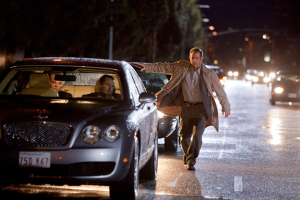By Joshua Knopp/reporter
Edge of Darkness is an average film, but a very intriguing one.

The plot centers around Detective Thomas Craven (Mel Gibson) trying to solve the case of his daughter’s murder and the political scandal he uncovers in the process.
Most of the plot is taken almost verbatim from the 1985 BBC miniseries of the same name, though the ending changes fairly sharply. This change is mainly because of the movie’s new setting — Boston, as opposed to the TV series’ setting of England.
“The idea was to transfer the story to a different time and place rather than just repeat what we did in England,” said director Martin Campbell in a BBC interview.
Campbell, who also directed the series, has revealed what he likes about the story — the emotional aspect of Craven losing his daughter. The emotion of losing a loved one is not only Craven’s driving factor, but the theme of the film.
The theme that everyone is someone’s child is made painfully clear, to the point that a character allows himself to be killed upon learning that the man he defended himself against is a husband and father.
In this, the script seems to reverse what is clear and what is shrouded. Most films focus on the plot and leave theme to the audience while Edge of Darkness screams the theme at the audience and leaves the plot hard to follow.
This is the movie’s main flaw. The plot is not only convoluted, but nearly all speech is buried in overly thick Boston accents, and dialogue the audience strains to understand is deliberately cryptic.
Another factor that is sub-par from time to time is the acting.
Gibson mails in certain sequences, particularly the first segment, and Danny Huston’s performance is poor at best. Ray Winstone, who played the main character in the BBC series, delivers the best performance of the cast, and that is an average one.
While bad acting can ruin a movie, it does not do so here. Well-shot action sequences prop up the mediocre plot and acting. Although the plot is a little difficult to follow, this could be interpreted as its leaving more to the viewer to decide.
Overall, the film becomes average with both highs in action and lows in acting.























